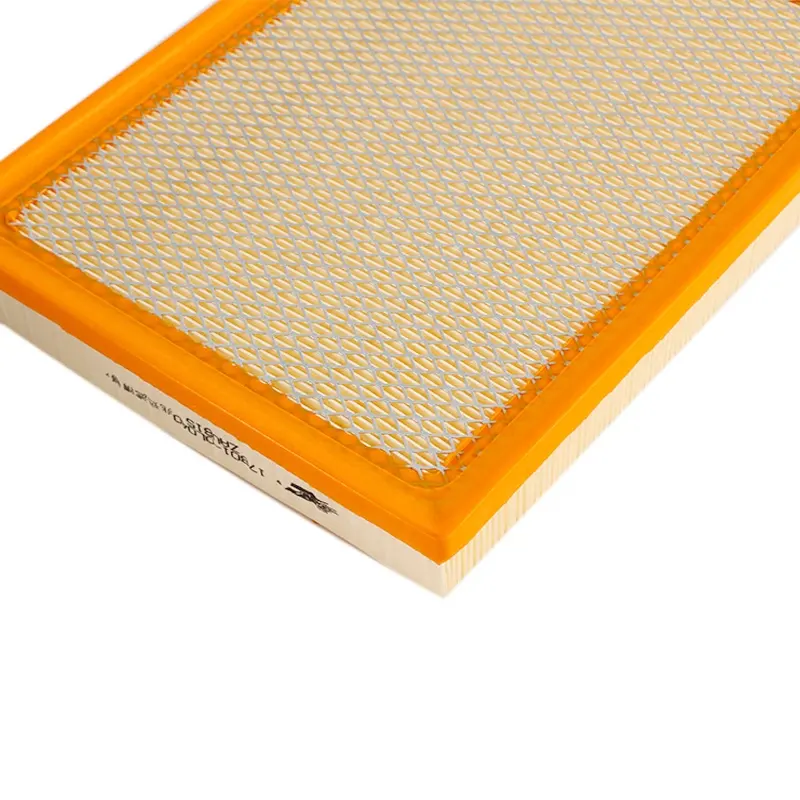Dec . 04, 2024 10:39 Back to list
automobile cabin filter
Understanding the Importance of Automobile Cabin Filters
In the realm of automotive maintenance, one component often overlooked is the cabin air filter. This seemingly minor part plays a crucial role in ensuring the comfort and safety of passengers within a vehicle. Understanding the purpose, functioning, and maintenance of cabin filters is essential for any car owner aiming to enhance their driving experience.
What is a Cabin Air Filter?
The cabin air filter is a specialized filter located within the vehicle’s ventilation system. It is designed to trap dust, pollen, soot, and other airborne particles before they enter the car’s interior through the heating and air conditioning systems. Some advanced cabin filters are even equipped with activated charcoal or carbon, which further help in eliminating unpleasant odors and harmful gases, ensuring a breath of fresh air inside the cabin.
Why is a Cabin Air Filter Important?
1. Air Quality Control The primary function of a cabin air filter is to enhance the air quality within the vehicle. A clean cabin air filter prevents pollutants and allergens from infiltrating the car, making it especially important for individuals with allergies, asthma, or other respiratory problems. This is crucial during high pollen seasons or in urban areas with significant air pollution.
2. Comfort and Convenience A clean filter ensures the climate control system operates efficiently. A clogged cabin air filter can restrict airflow, making it difficult to maintain a comfortable temperature inside the vehicle. Thus, a regularly maintained cabin filter contributes to a more pleasant driving experience.
3. Protection of HVAC System By filtering out particulates, the cabin air filter helps protect the car's heating, ventilation, and air conditioning (HVAC) system from dust and debris. A clean system operates more efficiently, which can prolong the life of the HVAC components and reduce the need for costly repairs.
4. Odor Reduction Smokers, pet owners, or those who often travel with food will appreciate the benefits of a functioning cabin air filter. With activated carbon filters, these odors can be significantly reduced, creating a more enjoyable atmosphere inside the car.
Signs That Your Cabin Air Filter Needs Replacement
1. Decreased Airflow If you notice that air coming from the vents is weaker than usual, it could be a sign that the cabin air filter is clogged and needs replacing.
automobile cabin filter

3. Increased Allergies If you or your passengers are experiencing heightened allergy symptoms during drives, it may be due to a dirty cabin air filter allowing pollutants to enter the cabin.
4. Visual Inspection Many cabin air filters are easily accessible. A quick visual inspection can reveal excessive dirt and debris, indicating the filter needs replacement.
Maintenance Tips for Cabin Air Filters
1. Regular Replacement Most manufacturers recommend replacing the cabin air filter every 15,000 to 25,000 miles, but this can vary based on your driving environment. In areas with heavy traffic, pollution, or high pollen counts, more frequent changes may be necessary.
2. Consult Your Owner’s Manual Always refer to the vehicle’s owner’s manual for specific recommendations regarding the cabin air filter. It will outline the correct type of filter to use and the replacement schedule.
3. Choose Quality Filters Opt for high-quality cabin air filters that meet your vehicle's specifications. While cheaper options are available, they may not provide the same level of filtration and air quality improvement.
4. Professional Service If you're unsure about how to change the filter, consult a professional mechanic. Regular servicing by a qualified technician can ensure that not only the cabin air filter but all aspects of the vehicle are maintained.
Conclusion
In the fast-paced world of automotive care, it's easy to overlook the significance of the cabin air filter. However, by understanding its importance and ensuring regular maintenance, car owners can significantly enhance the air quality, comfort, and safety of their driving experience. Investing time in this often-neglected component not only benefits your health but also contributes to the longevity and efficiency of your vehicle’s HVAC system. Keep the air inside your vehicle fresh and clean by giving due attention to your cabin air filter!
-
Toyota Corolla Hatchback Cabin Air Filter – High Efficiency & Easy Installation
NewsJul.08,2025
-
Premium Canister Fuel Filter Supplier High Quality Oil Filtration Solutions
NewsJul.08,2025
-
Premium Car Filter Oil Solutions Leading Car Oil Filter Exporter Hyundai Car Oil Filter Exporters
NewsJul.08,2025
-
Buy 17x21x1 Air Filter – Improve Air Quality & HVAC Efficiency Affordable Air & Cabin Air Filter Cost
NewsJul.07,2025
-
High-Performance Filter Element Fuel – Durable, Efficient & Cost-Effective Solutions
NewsJul.07,2025
-
High-Quality Engine Filter and Cabin Filter for Superior Airflow Affordable Cabin and Engine Air Filter Cost
NewsJul.07,2025


